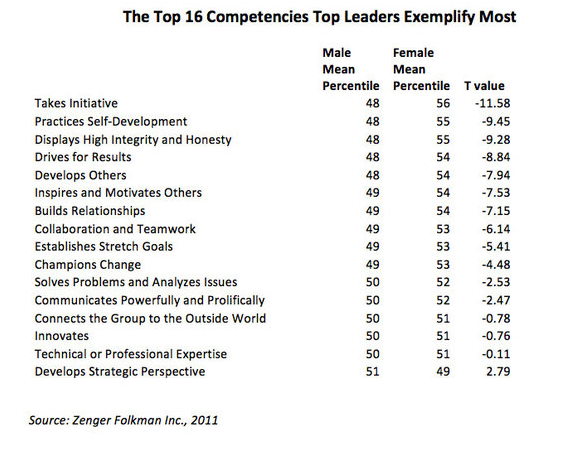by Charles Plant | Jun 11, 2013 | Leadership Development
 While there is no fancy term for it like Glassophobia, an inability to think or speak when under pressure is much the same as the reaction people have to speaking to an audience. This is choking. The thing is though that you need to be able to work effectively under pressure to succeed nowadays.
While there is no fancy term for it like Glassophobia, an inability to think or speak when under pressure is much the same as the reaction people have to speaking to an audience. This is choking. The thing is though that you need to be able to work effectively under pressure to succeed nowadays.
What’s happening is that in pressure filled situations, the brain’s processing power which is known as working memory is depleted. Working memory is located in the pre-frontal cortex and is used for temporary storage for information relevant to whatever it is you are doing.
When working memory becomes overburdened, people lose the brain power they particularly need in pressure filled situations. This is what happens when you choke and I think its affect is even greater for people who have to speak publicly when they are not used to doing so.
I bet you never thought you would get a biology lesson when you started reading this blog but I thought if you understood why you choke when you do, it might alleviate the pain. I have a habit of choking when I need to remember someone’s name. So if I run into you on the street and look flummoxed, it’s just because I’m choking and can’t for the life of me remember your name.
by Charles Plant | Jun 10, 2013 | Leadership Development
 Getting off controversial topics for awhile, I was reminded on the weekend about one woman I’ve worked with in the past who is enjoying an excellent career but is desperately afraid of public speaking. And there’s even a word for it: Glossophobia.
Getting off controversial topics for awhile, I was reminded on the weekend about one woman I’ve worked with in the past who is enjoying an excellent career but is desperately afraid of public speaking. And there’s even a word for it: Glossophobia.
Unfortunately these days, if you want a career that progresses into senior management you’ll have to get good at this, no matter how distasteful it is.
There’s lots and lots of stuff on the web on why this occurs: fear of failure, inability to be vulnerable, self-doubt. I was even reading an archaeological perspective on the subject wherein people are afraid to rise up in a tribe for fear of being kicked out and thus not being defended and ending up being eaten by sabre toothed tigers.
The thing to remember is, no one is thinking about you anyway. They’re all too busy thinking about themselves to waste time thinking about you. If you don’t believe me, wait 30 days after you’ve done a presentation and ask anyone there what they thought of your presentation.
Chances are, unless it was the worst one they’ve ever seen or the best, they won’t remember a thing you said or how you said it. But if they happened to ask a question at your presentation, they’ll remember what the question was, how smart it made them sound, and how everyone was in awe of their brilliance.
So stop worrying about public speaking. There are no sabre-toothed tigers anymore, even if some of your co-workers look like they are ready to tear you limb from limb.
by Charles Plant | Jun 7, 2013 | Leadership Development
 I’ve spent the last couple of years trying to figure out what leadership is, what conditions support good leadership and how people learn to be leaders. I’m continually surprised by what I learn and think this is a marvellous topic because it is so complex and so rooted in human dynamics.
I’ve spent the last couple of years trying to figure out what leadership is, what conditions support good leadership and how people learn to be leaders. I’m continually surprised by what I learn and think this is a marvellous topic because it is so complex and so rooted in human dynamics.
Until this week I hadn’t thought about whether women are or are not better leaders than men. Frankly it had never crossed my mind to think of the issue but thanks to Rob Ford and other male-dominated scandals, I waded in fearful of the minefield and potential backlash.
I have been trying to boil down leadership to a common set of conditions under which all sorts of behaviours can be exhibited. In previous posts I had identified leadership as meeting follower needs for vision, to be cared for, to understand and be understood and to be motivated.
I have been debating with myself and others recently as to whether leadership is all emotional and was leaning that way until this week. I’m now of the opinion that leadership is the ability to use a balanced set of behavioural, emotional and intellectual skills to get things done through other people.
And this is why women make better leaders than men. Women make better use of behavioural and emotional skills than men do. While we may have equal intellectual skills (although a number of women I know will debate this), I think that most men would agree that women are more in tune emotionally and exhibit better behavioural control than men do.
I used to say that men have no emotions and now know this to be misstated, men just don’t understand their emotions, they frequently lack emotional intelligence. And this hampers our ability to be better leaders.
by Charles Plant | Jun 6, 2013 | Leadership Development
 I’m wading carefully into this issue of women as leaders, trying not to piss anyone off. The question remains, if women make better leaders than men, why are there fewer of them in the C Suite? This is to me, a paradox of ego.
I’m wading carefully into this issue of women as leaders, trying not to piss anyone off. The question remains, if women make better leaders than men, why are there fewer of them in the C Suite? This is to me, a paradox of ego.
My own experience is that women don’t have egos the size of mens. A man’s ego will say, “I can do that” where a woman will say “Can I do that?” I know this is a gross generalization but for a well publicized example, look at Cheryl Sandberg. The author of the book, Lean In is COO of Facebook.
In an interview for The Guardian , she goes on to identify “behaviours exhibited by women in the workplace – an unwillingness to ask for more money; a tendency, in meetings, to hold back; a conservatism in estimating their self-worth – as the warping effect of historical and ongoing gender bias. Guys in her office go for promotion when they have a fraction of the necessary skills, she notes; women, by and large, wait until they have 100%. And wait to be asked, or rather, cajoled into applying.”
Cheryl’s story of her own negotiation for her compensation at Facebook is an excellent example of just that thinking at work.
This is all a function of ego. The irony is that this is one of the factors that make women better leaders. This lack of ego. It isn’t all about them so they can do a better job meeting employee needs.
So a lack of ego makes women better leaders but hinders their rise to positions of leadership. Human behaviour sure is a funny thing eh?
by Charles Plant | Jun 5, 2013 | Leadership Development
 So research says that women leaders are better than men when they are rated in 360 degree surveys but I guess the question remains: do they get better results? Rather hard to measure this yet as the takeover of the C suite by women is not yet complete. But there are two studies that I have found that are indicative.
So research says that women leaders are better than men when they are rated in 360 degree surveys but I guess the question remains: do they get better results? Rather hard to measure this yet as the takeover of the C suite by women is not yet complete. But there are two studies that I have found that are indicative.
The first study relates to women on the board of Directors and was reported on Bloomberg. “Shares of companies with a market capitalization of more than $10 billion and with women board members outperformed comparable businesses with all-male boards by 26 percent worldwide over a period of six years, according to a report by the Credit Suisse Research Institute.”
A blog on Nasdaq reported reported “Fortune 500 companies that had a woman at the helm for all of 2009 were up an average 50%.” And according to Forbes: “as a group they outperformed the overall market–companies dominated by male chief executives–by 28%, on average, and topped their respective industries by 15% [in 2010].”
So if the research is correct and women leaders are rated better and get better results, why are they better? What is it that makes women better leaders and what can we men learn from that?
by Charles Plant | Jun 4, 2013 | Leadership Development
I was surprised to receive a number of comments yesterday (from men) who were of the firm opinion that women don’t necessarily make better leaders than men. But I think thou doth protesteth too much.
I went trolling for research on the subject at the behest of one reader (female) who said there is lots of research to support the proposition that women make better leaders. According to her, there are lots of studies that show that companies with more women as directors outperform companies with fewer.
The most extensive research I uncovered comes from the Harvard Business Review. They report a study of 7280 leaders using 360 degree assessments. “At every level, women were rated by their peers, their bosses, their direct reports, and their other associates as better overall leaders than their male counterparts – and the higher the level, the wider that gap grows.”
What I found most surprising was that at all levels, women are rated higher in 12 of the 16 competencies they tested that go into outstanding leadership. In case you don’t believe me, check out the following chart:

 While there is no fancy term for it like Glassophobia, an inability to think or speak when under pressure is much the same as the reaction people have to speaking to an audience. This is choking. The thing is though that you need to be able to work effectively under pressure to succeed nowadays.
While there is no fancy term for it like Glassophobia, an inability to think or speak when under pressure is much the same as the reaction people have to speaking to an audience. This is choking. The thing is though that you need to be able to work effectively under pressure to succeed nowadays.




